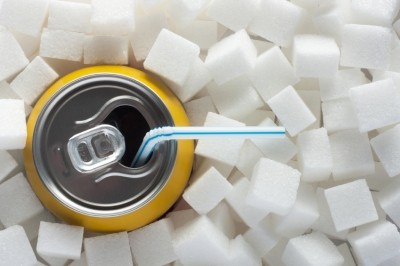Britvic ‘well placed’ to deal with UK sugar tax

The soft drinks company said two thirds of its volumes will fall below the proposed tax bands.
Its comments follow that of A.G. Barr, which in its full year results in March reported a combination of brand strength and ongoing product reformulation would minimize the impact of the levy on its business.
Evolving consumer preferences
The UK’s tax on sugar-sweetened beverages was announced during the government’s 2016 Budget.
The levy will have two bands: one for total sugar content above 5g per 100 ml; and a second band for drinks with more than 8g per 100 ml.
Simon Litherland, chief executive officer, Britvic, said the company has been working to reduce calories in its portfolio for a number of years, and two thirds of its volumes will not be subject to the levy.
“While we are disappointed with the decision [to implement a levy] and believe a holistic approach is necessary to tackle obesity, Britvic is well placed to respond as we have been building our portfolio of ‘Better for You’ soft drinks for some time,” he said.
“As currently proposed, 66% of our volumes fall below the proposed tax bands.
“Since 2012, our actions, such as the removal of full sugar Fruit Shoot and Robinsons and the reformulation of brands such as J2O and Drench, have led to an annualized 19 billion calorie reduction across our portfolio.
Other reactions to sugar tax: A.G. Barr
Like Britvic, UK soft drinks company A.G. Barr expects two-thirds of its portfolio will be levy-free when the sugar tax is introduced in 2018.
It has reduced the average calorific content of its company-owned portfolio by 8.8% in four years, and anticipates the scale of change to accelerate over the next year as it reduces its exposure to high sugar products.
“We will continue to play this leadership role and our focus will be on creating a portfolio of brands which appeals to evolving consumer preferences.”
Britvic says it has taken significant steps in recent years to reduce added sugar and reformulate drinks – for example, using stevia – and remains committed to a 20% calorie reduction by 2020.
It adds it will fully engage in the government consultation process on the sugar tax this summer.
No-sugar Pepsi Max success
Britvic today reported its interim results for the 28 weeks ending April 10, 2016. H1 revenue increased 5.1% to £678m ($994m) and 4.3% based on actual exchange rates (AER). Profit after tax increased 7.5% to £41.7m ($61m).
Litherland said the business continues to invest in long-term drivers of growth: supply chain efficiency in Great Britain, innovation, and its international business.
In 2015 it acquired Brazilian soft drinks company Ebba, and its Fruit Shoot multi-pack is being launched in the US.
In Great Britain, the company saw revenue growth of 2.4% in its carbonates in H1, led by Pepsi.
“The focus on the no-sugar Pepsi Max variant continued to be very successful with the new cherry variant a key factor in the growth,” said Britvic.
Meanwhile, the GB stills portfolio had a ‘disappointing’ first half of the year, with revenue falling 7.9%.
“Our recent innovations, including Teisseire and J2O Spritz are generating category growth and the second half of the year will see the introduction of new packs for Robinsons and the re-launch of Drench, an adult juice drink, with a new brand identity and lower sugar formulation,” the company said.
“As consumer trends move to “Better for You” products, our broad stills portfolio combined with our innovation program is well positioned to capitalize on the future growth opportunities.”
Britvic is the largest supplier of branded still soft drinks in Great Britain and the number two supplier of branded carbonated soft drinks. It combines its own brand portfolio (including Robinsons, Tango, J2O, Fruit Shoot, Teisseire & MiWadi) with PepsiCo brands such as Pepsi, 7UP and Mountain Dew Energy (which Britvic produces and sells in GB and Ireland under exclusive PepsiCo agreements).
Britvic also has operations in Ireland, France and Brazil.





















